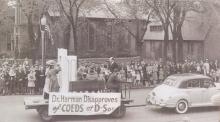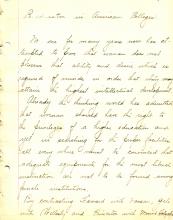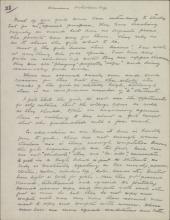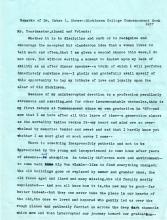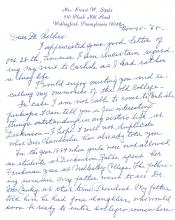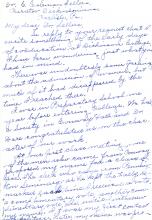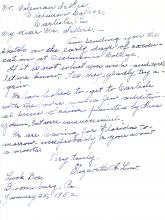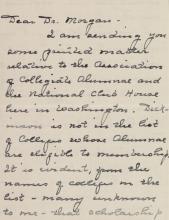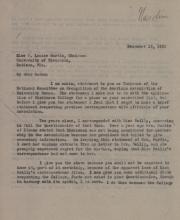Women Prevail Over Harman
Dickinson Magazine chronicles the birth of coeducation at the college. In 1877 a committee considered "the advisability of admitting ladies," and the next year faculty voted almost unanimously that women should attend Dickinson - a single professor, Henry Harman, opposed the idea. He was still opposed in 1883, when a faculty vote nonetheless approved admission of women to the college. Although Harman may never have warmed to the idea of women at Dickinson, he did agree in 1896 to have his name ironically attached to a newly-formed women's literary society.

